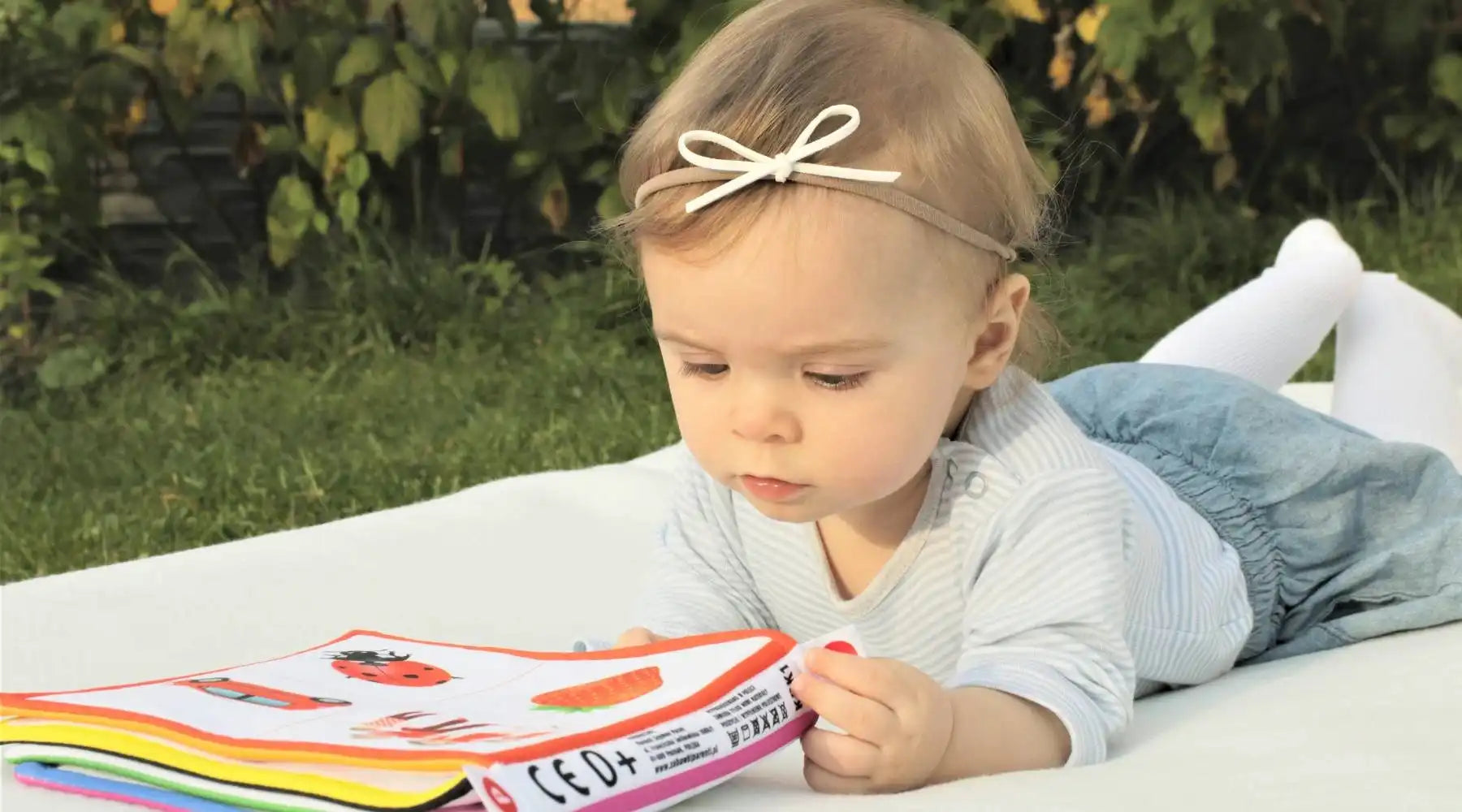
Caring for Baby’s Sensitive Skin: Tips for Parents
Key Points
- Understanding baby’s sensitive skin – Newborn skin is thinner, more delicate, and prone to irritation. Recognizing signs like redness, dryness, or rashes early helps parents create the right baby sensitive skin care routine with gentle, fragrance-free products.
- Choose the best fabrics for babies – Soft, breathable materials such as organic cotton and bamboo baby clothing are hypoallergenic and minimize irritation. Avoid harsh dyes and chemicals by selecting certified organic, hypoallergenic fabrics for clothing and bedding.
- Gentle bathing and skincare routine – Protect delicate skin with lukewarm baths, fragrance-free cleansers, and hypoallergenic baby moisturizers. Limit bath time, moisturize immediately afterward, and prioritize sun protection through clothing and shade rather than chemicals.
- Embrace organic baby skin care and natural remedies – Use organic oils like coconut or sunflower oil, plus natural newborn remedies such as oatmeal baths and aloe vera gel to soothe irritation. Always avoid harsh chemicals and look for products labeled safe for sensitive skin.
- Build a consistent newborn skin care routine – Establishing a regular baby skincare routine with gentle baths, daily moisturizing, organic clothing, and careful monitoring ensures long-term skin health. Adjust based on environmental factors and consult your pediatrician as needed.
Caring for your baby's sensitive skin is a top priority for every parent. Newborns have delicate skin that requires gentle care and protection. With the right approach, you can maintain your baby’s healthy skin while preventing irritation, dryness, or allergic reactions. This guide offers practical tips and advice for baby sensitive skin care, covering everything from the best fabrics for babies to organic baby skin care ideas, hypoallergenic baby clothing recommendations, and natural newborn skin remedies to build a gentle skin care routine.
Understanding Baby’s Sensitive Skin
Newborn skin is much more delicate than adult skin—it’s thinner, more vulnerable to irritants, and can be prone to dryness and rashes. Recognizing signs of sensitive skin (such as redness, itchiness, and persistent dryness) early on allows you to tailor your care routine. Experts recommend using gentle, fragrance-free products and natural, hypoallergenic materials to avoid triggering irritation.
Best Practices for Baby Sensitive Skin Care
1. Choose the Right Fabrics
The fabrics your baby wears and sleeps on are crucial in protecting their sensitive skin.
-
Best Fabrics for Babies: Opt for soft, breathable materials like 100% organic cotton or bamboo fabric. These fabrics are hypoallergenic, allow proper airflow, and are gentle on delicate skin.
For more insights on eco-friendly fabrics, check out our article Soft on Skin, Tough on the Environment? The Real Impact of Bamboo Baby Wear. -
Hypoallergenic Baby Clothing: Ensure that clothing and bedding are free from harsh dyes and chemicals. Look for certified organic labels and products specifically designed for sensitive skin.

2. Gentle Bathing and Skincare Routine
A gentle bathing routine is key to protecting your baby’s sensitive skin.
-
Bathing: Use lukewarm water and limit baths to 5–10 minutes to avoid stripping natural oils. Choose mild, fragrance-free cleansers specifically formulated for babies.
-
Moisturizing: After bathing, gently pat your baby’s skin dry and apply a gentle, hypoallergenic moisturizer to lock in hydration. Look for products free of parabens and irritants.
-
Sun Protection: Protect your baby's skin from direct sun exposure by using protective clothing, hats, and shade rather than relying solely on sunscreen (which may contain chemicals unsuitable for infants).
3. Embrace Organic and Natural Skincare
Natural remedies and organic products can soothe sensitive skin and promote healing.
-
Organic Baby Skin Care: Consider using organic oils like coconut or sunflower oil for gentle moisturizing. These natural products help soothe irritation and maintain the skin barrier.
-
Natural Newborn Skin Remedies: For mild irritation or dryness, oatmeal baths or pure aloe vera gel can calm inflamed skin.
-
Avoid Harsh Chemicals: Always read labels and choose products labeled “for sensitive skin” or “hypoallergenic.”
4. Build a Consistent Newborn Skin Care Routine
A consistent routine is essential for maintaining healthy baby skin.
-
Daily Bath Routine: Bathe your baby 2–3 times a week using lukewarm water and a mild, fragrance-free cleanser.
-
Moisturize Immediately: Apply a gentle moisturizer right after a bath to lock in moisture and protect the skin barrier.
-
Clothing Choices: Dress your baby in soft, breathable fabrics—organic cotton onesies, sleepwear, and bedding help minimize irritation.
-
Monitor and Adjust: Regularly check your baby’s skin for signs of irritation or allergic reactions, and consult your pediatrician if needed.
5. Additional Tips for Daily Skin Care
-
Laundry Care: Use gentle, fragrance-free detergents for washing your baby’s clothes and bedding. Avoid fabric softeners to prevent residue build-up.
-
Environmental Factors: Maintain a comfortable room temperature and use a humidifier during dry months to keep the skin hydrated.
-
Regular Pediatric Checkups: Regular visits to your pediatrician help monitor your baby’s skin health and provide personalized advice.
For more guidance on creating a nurturing environment for your little one, read our article Creating a Safe Nursery: Babyproofing Tips and Stylish Solutions.

FAQs About Baby Sensitive Skin Care
Q: What signs indicate that my baby has sensitive skin?
A: Look for persistent redness, dryness, itchiness, or rashes. If irritation lasts more than a few days or seems to cause discomfort, consult your pediatrician.
Q: Are organic and hypoallergenic fabrics really necessary?
A: Yes, using organic and hypoallergenic fabrics minimizes exposure to chemicals and irritants, keeping your baby’s skin healthier and reducing the risk of allergies.
Q: How often should I bathe my baby with sensitive skin?
A: Generally, 2–3 baths per week are sufficient, as over-bathing can strip natural oils. Adjust frequency based on your baby’s skin condition and activity levels.
Q: How do I know if a product is truly hypoallergenic?
A: Look for certifications on the packaging, check ingredient lists for common allergens, and consider reading reviews or consulting with your pediatrician for recommendations.
Q: What are some common triggers for baby’s sensitive skin?
A: Common triggers include harsh detergents, synthetic fabrics, extreme temperatures, and overexposure to sun or wind. Adjusting your routine to avoid these triggers can help maintain healthy skin.
Engage with Our Community
We’d love to hear about your experiences and tips for caring for your baby’s sensitive skin. Share your favorite organic products, DIY remedies, and clothing recommendations in the comments below, or tag us on social media using #GentleBabyCare. Your insights help build a supportive community of parents dedicated to safe and gentle skin care.
Conclusion
Caring for your baby's sensitive skin doesn’t have to be overwhelming. By choosing the best fabrics for babies, using organic and hypoallergenic products, and establishing a gentle, consistent skincare routine, you can protect your baby’s delicate skin and promote healthy, happy growth. Every baby is unique, so adjust your routine based on your child’s specific needs, and always consult your pediatrician for personalized advice.
We hope these expert tips empower you to create a nurturing environment for your little one. For more expert advice on parenting and baby care, check out our article Postpartum Essentials: The Ultimate Checklist for New Moms and subscribe to our newsletter for updates on baby sensitive skin care and natural remedies.










